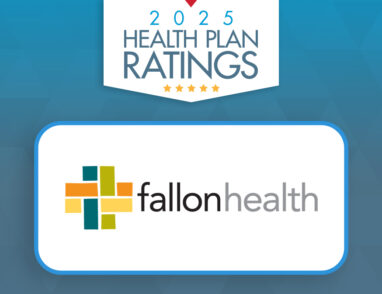NCQA Researchers Share Findings on Emerging Topics in Health Care
September 12, 2025 · Becky Kolinski
NCQA presented nine research topics at the AcademyHealth Annual Research Meeting (ARM) this summer. The ARM is a leading venue for health services researchers and health care policy experts to share new findings and discuss policy implications.
“Presenting at the AcademyHealth ARM allows us to share our research with thought leaders from around the country, and get their feedback and reactions,” says Rachel Harrington, NCQA’s Senior Product Strategist. “This event demonstrates the power of collaboration and dialogue within the research community.”
Putting Quality Into Practice
NCQA’s research isn’t just theoretical—it’s grounded in the realities health care organizations face every day. “We’re not testing ideas in a vacuum,” Harrington explains. “We’re focused on what works in practice.”
Race and Ethnicity Data Collection. Harrington joined a panel to discuss how NCQA is adapting its HEDIS® and Accreditation programs in response to updated federal standards for race and ethnicity data collection. Updates for HEDIS MY 2026 were recently announced in our blog.
Social Needs Screening. NCQA evaluated social needs screening and intervention rates for more than 500 commercial and Medicaid plans, and identified barriers that limit adoption: lack of standardized screening questions, challenges transferring data from HIEs to health plans, inconsistent state and federal policy guidance and incentives.
- View the poster: Improving Policy and Systems for Social Needs Measurement: Key Insights from First Year of National Health Plan Performance.
Person-Centered Outcome (PCO) Measures. Our latest research compares implementation of PCO measures in Certified Community Behavioral Health Clinics (CCBHC) and long-term services and supports/primary care settings (LTSS/PC) including 197 clinicians and 7,867 patients. We found that CCBHCs performed well in goal identification, while LTSS/PC achieved better follow-up and goal achievement. Staff turnover was a barrier to implementation in all settings.
Partnering With The Community to Improve Care for People with Disabilities
NCQA is focused on ways to define and enable high-quality care for people with disabilities. Our research highlights the importance of partnering with community-based organizations to help ensure that all community members have a voice in health care quality.
Julie Seibert, NCQA’s Assistant Vice President, Behavioral Health, spoke on a panel about NCQA’s role in an IEC (Institute for Exceptional Care) project to develop a quality measurement framework to address persistent health inequities among people with intellectual and developmental disabilities (IDD). “With more than 200 stakeholders, this project is a perfect example of community engagement in action,” says Seibert. “NCQA is honored to be a part of this initiative to identify quality measures that focus on the things that matter most for people with IDD and their families.” Read our blog to learn more about this important work.
NCQA also presented research on quality measurement priorities for people with disabilities and the current status of disability data collection in health care settings. The key takeaway: We need to work toward improving and standardizing data collection if we want to understand the needs and challenges to accessing care that people with disabilities face.
- View the poster: Current State of Disability Status Collection in Health Settings.
- Read the article: Improving Care for People With Disabilities Starts With Collecting Data.
Improving Outcomes for People with Chronic Conditions
Helping people manage chronic conditions can improve their quality of life, and reduce health care utilization and costs. NCQA’s research identifies gaps between clinical practice guidelines and current care delivery models where health care organizations can focus quality improvement efforts.
Delivering Better Asthma Care. NCQA found that, among a sample population of Medicaid and commercial plan members with asthma, fewer than half received timely follow-up care after an emergency department visit. Follow-up rates (including outpatient or telehealth visits within 30 days) varied by race, gender, COPD comorbidities and socioeconomic factors. This research informed NCQA’s new HEDIS measure, Follow-Up After Acute Care and Urgent Care Visits for Asthma (AAF-E), which encourages guideline-based health care utilization for asthma as a starting point for delivering better care.
- View the poster: National Trends in Post-ED Follow-Ups for Asthma.
Harrington also moderated a panel, Randomized Evaluations to Improve Care Delivery: From Deprescribing Tools to Collaborative Dementia Care. “This panel was an opportunity for NCQA to be part of a larger dialogue about making the health care system safer and more effective,” says Harrington. “When health plans and health care delivery systems collaborate and share their unique perspectives on quality improvement, everyone benefits.”
The Future of Quality
NCQA’s research is pushing boundaries and defining the future of quality, and that includes assessing the environmental impact of health care. The health care sector accounts for 8.5% of all greenhouse gas emissions, but is less engaged in reducing its carbon footprint than other industries. NCQA developed the Resilient Health Systems model to guide climate health initiatives within health care organizations.
“This framework integrates climate sustainability and resilience as a core outcome of health care quality—a distinction increasingly recognized by health care stakeholders as critical to overall system performance and readiness for long-term impact on health,” said Adrianna Nava, Applied Research Scientist for Quality Sciences.
Health plans can accelerate progress by focusing on strategies within their control and developing clear accountability models.
- View the poster: The Resilient Health Systems Model: Practical Actions for Health Plans to Reduce Carbon Footprints.
Work With Us!
NCQA welcomes and appreciates support from corporations and foundations that share our values and want to join us to advance our mission to improve the quality of health care. For more information about partnership opportunities, contact Erin Oganesian, AVP, Corporate & Foundation Relations at eoganesian@ncqa.org.








